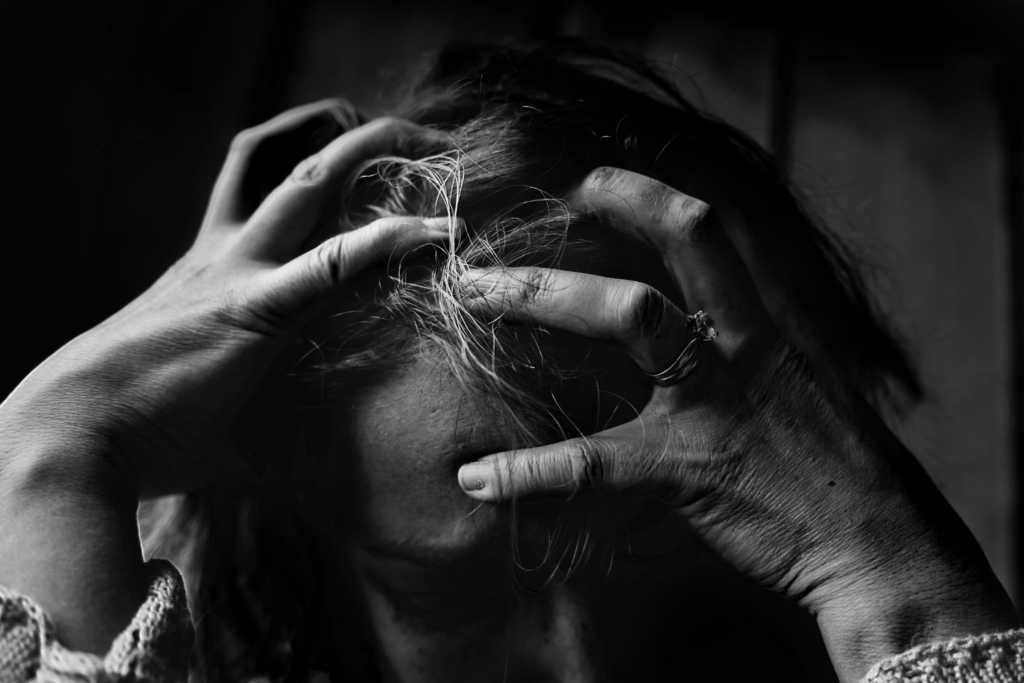At any given moment, some 40 million adults in the U.S. are suffering with anxiety. Anxiety is the most common mental health disorder in the nation, affecting 18.1% of the population.
And while there is no doubt that this is a huge issue, anxiety is unfortunately, along with many other mental health conditions, widely misunderstood and shrouded with stigma.
READ: Jimmy Wayne Urges Christians to Foster Kids: ‘We Can Solve the Problem’
But one woman is hoping to change that by sharing her struggles with anxiety in an open letter to her husband. By shedding some light on her own experience, she wants to help others who may have a partner or loved one who is going through the same thing.
“You might have heard that she has anxiety from sitting by her side in a doctors office, holding her hands while the tears steam down her face. You might have seen her get angry and explode because she’s overwhelmed. Wondering where this rage has come from. You might have seen her sit quietly staring into the distance with a panic in her eye,” reads the letter, published by Love What Matters.
“Anxiety isn’t a one size fits all, it isn’t consistent and it isn’t always easy to tell,” it continues. “You might think she’s just snapped at you, but it was anxiety that did it, you might think she’s angry, but it’s the anxiety that’s got a choke hold, you might think she’s not enjoying herself when you go out and it’s your fault, but it’s not. It’s anxiety.”
The woman goes on to talk about the symptoms of her anxiety, a central one being a compulsion to over-think things and to worry perpetually.
“She thinks about everything, and usually it is the worst case scenario. She worries that something will go wrong,” the letter reads. “That some days if she leaves the house, something will happen. Kidnapping, deaths, falls, cars spinning out of control, that’s why she can’t just leave the house or just go out, even though you’ve suggested it with good intentions.”
A common anxiety-related condition is called Generalized Anxiety Disorder (GAD). GAD affects around 6.8 million adults in the United States.
The Anxiety and Depression Association of America explains a bit more about the illness:
“Generalized Anxiety Disorder (GAD) is characterized by persistent and excessive worry about a number of different things. People with GAD may anticipate disaster and may be overly concerned about money, health, family, work, or other issues. Individuals with GAD find it difficult to control their worry. They may worry more than seems warranted about actual events or may expect the worst even when there is no apparent reason for concern.”
Many of those who suffer from a mental health condition become concerned about how their internal struggles affect those around them. They may begin to feel as if their loved ones would be better off without them.
“Sometimes she wonders why you’re with her, and if you knew she had anxiety would you still be there, do you regret it? Being with her? Do you wish you were with someone else that didn’t have this vice around their neck?” the woman continues in the heartbreakingly honest letter.
“I want you to know I see that this is tough on you, tough to see your loved one hurt, tough on you, the pressure for you would be immense. But don’t think for a second she doesn’t see you, don’t think for a second she doesn’t worry about you too. She even gets anxiety about you. She knows it’s not your fault, and she knows you want to fix her and in the way that means you help her, but you can’t fix her. She’s not broken.”
Then, the letter shifts gear, and the woman begins to discuss some things her husband can do to help her when she is anxious:
“You can see what gets too much for her, the crowds of people or bed time, dinner time, see it and help her by holding her hand and tell her you’re with her. Do it with her, take over, tell her to sit down for a while and breathe,” she writes.
“If you see her struggling with appointments, reschedule them for her, encourage her to take it slowly. Too much is overwhelming for her, even though she has good intentions. Don’t make her feel bad for missing an appointment, a party, whatever. She wanted to go, but she couldn’t. She already feels bad. Tells her it’s okay.”
“Not every day will be bad,” she adds. “Those days should be celebrated, but on the bad days, still celebrate her, because she needs it.”
“She appreciates you, she loves you. She’s vulnerable and scared. But she chose you to share her biggest deepest scar tissue that resides in her heart, and she knew the day she met you that you were the one worthy enough to see her in all her imperfections,” the letter concludes.
“She will love you with that whole heart, and you know she will because she’s already listed the pros and cons… and just as you are by her side she will be fiercely loyal to yours. Forever and ever, you just to need take her hand and tell her, ‘I am with you.’”
To learn more about anxiety disorders and available treatments, visit the ADAA’s website here.
(H/T: Love What Matters)



